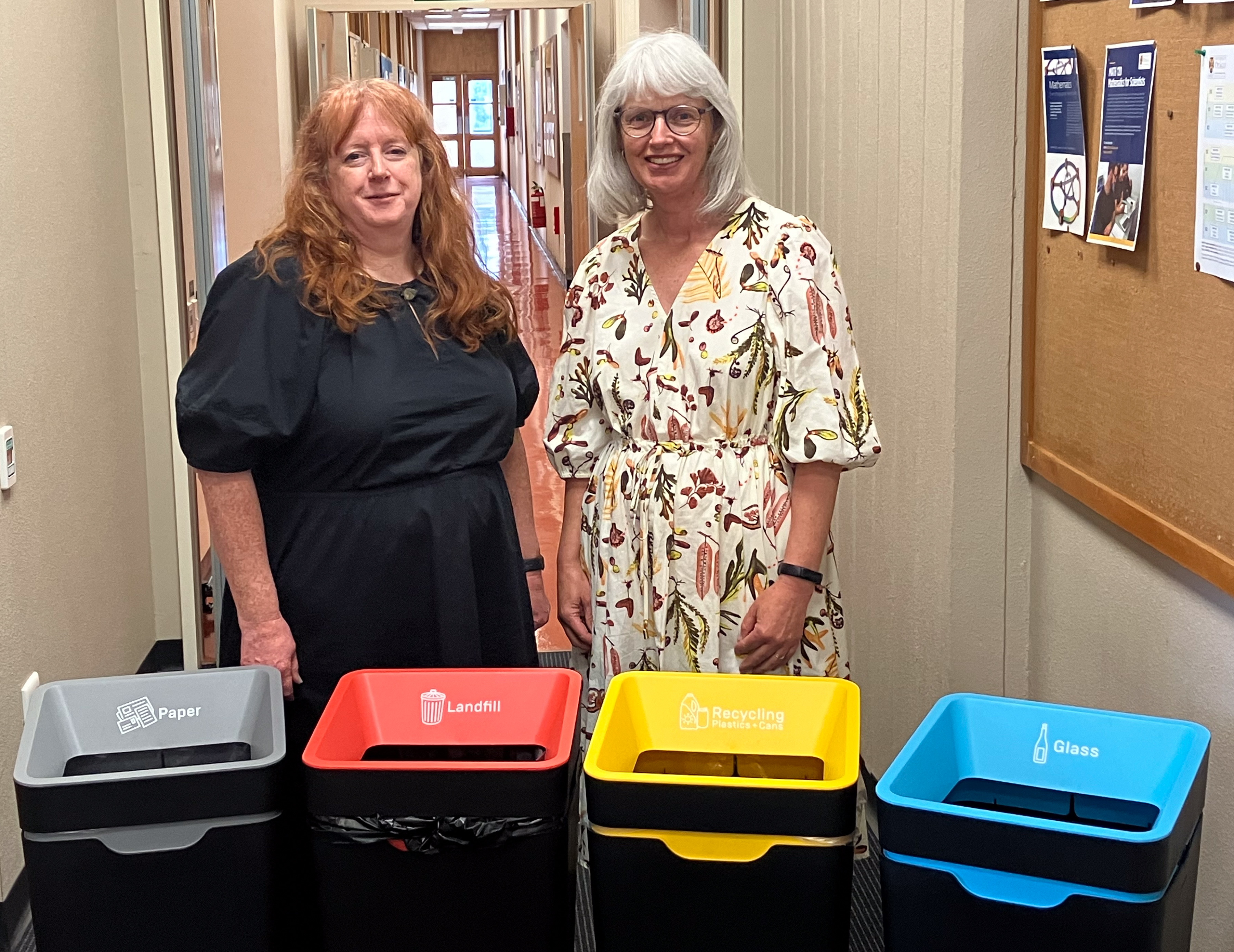
Both Professor Sarah Wakes, left, and Dr Linda Dunn teach the Summer School paper MATS204 Treasure or Trash: Sustainability of Materials.
A Summer School paper is practising what it teaches – and with a roll seven times that of when it started, it’s proving to be sustainable and treasured.
Summer school paper MATS204 Treasure or Trash: Sustainability of Materials is taught by Professor Sarah Wakes and Dr Linda Dunn and this year had more than 140 students, a significant increase from the 21 in its inaugural year in 2018.
“It’s about all aspects of sustainability of materials, so we cover the whole life cycle: extraction, processing, manufacture, use and end of life,” Sarah says.
“Really it’s about how materials touch our everyday lives all the time, we wear them, we sit on them, we eat them. We can’t survive without materials.”
The paper covers aspects that affect the sustainability of materials such as pollution, environmental impact, energy and social factors such as modern slavery.
“We want our students to be aware of how complex sustainability is but also how materials are really an absolutely key vital part of that story.”
Once people understand materials and the things that affect how sustainable they are, then changes can be made to improve their sustainability.
The paper aims to build a community of sustainable practise, and sees each student take on a sustainability challenge of their own choosing and sharing it on the class discussion board.
“The idea is that they learn by doing, and they learn that sustainability is complex, that we have to make choices, but also that a small step can make a big difference and lead to further steps.”
The challenges depend on each person’s own sustainability journey and range from eating one vegetarian meal per week to eliminating single use plastics.
“The idea is that they build a habit and they support each other through the discussion board.”
The paper was first offered in 2018 and has always been a summer school paper. It started with a mix of on campus and distance learning students, before becoming a distance paper in 2021 which allowed Sarah and Linda a bit more freedom on how they delivered each topic.
Students are given access to a series of videos and a suggested order to view them in.
“It allows us to deliver [the paper] in bite size chunks, we don’t really deliver anything that is more than 20 minutes if we can help it.”
Sarah likes to keep in mind what sorts of things her students might be doing over summer in addition to the paper such as working in retail, picking fruit in Central Otago or completing an internship.
“They might be watching the content in their lunch hour or on the bus on the way home. They don’t want to sit and listen to an hour-long lecture, they want to be able to pick something up and tick it off the list.”
She says enrolment numbers have grown since switching to purely distance learning.
“We started in 2018 with 21 students … this year is the largest number we’ve had – 140.”
The pan-divisional paper has students from every division taking it, she says.
“From marketing students to law students, to chemistry students to physiology students – across the board.
“I think that really speaks to how universal sustainability is. It actually affects everybody.”
Many students take the paper because they’re really interested in and enthusiastic about sustainability and want to know more, she says.
Sarah frequently receives emails from students at the end of the paper saying it has changed how they look at everything or it’s changed the direction of what they want to do with their career.